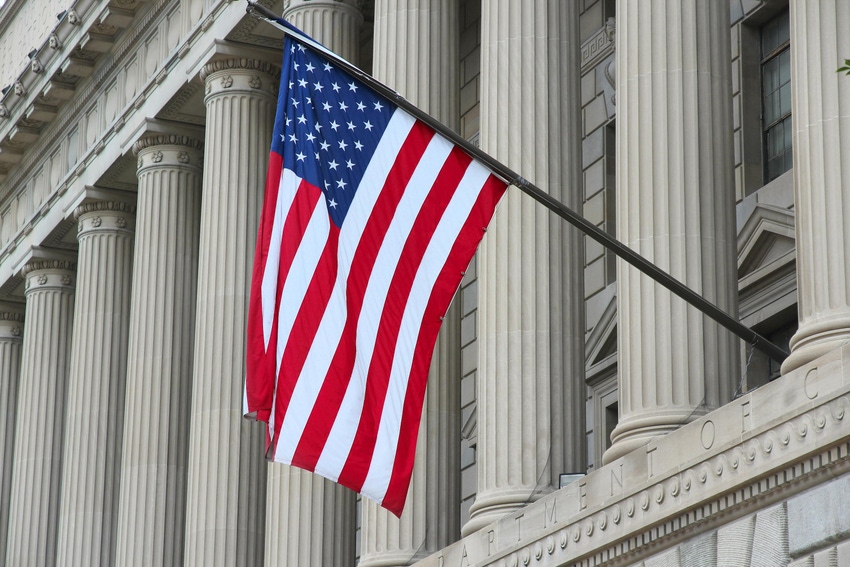Biden's spectrum plan doesn't quell 5G capacity worries
'More work needs to be done,' wrote AT&T CEO John Stankey in response to the release of the Biden administration's national spectrum strategy. Others agreed that the administration's plan doesn't go far enough.

Two top executives in the 5G industry renewed calls this week for more spectrum for commercial uses. The comments come just weeks after the Biden administration released a 26-page national spectrum strategy.
"If we want to build game-changing applications in the United States, we need mobile networks with bandwidth for innovation," AT&T CEO John Stankey wrote on social media, pointing to an article he authored titled "We Need More Bandwidth for Innovation."
Stankey acknowledged President Biden's new national spectrum strategy released earlier this month by the NTIA, a White House agency in charge of advising the president on telecom matters.
"But more work needs to be done to ensure the US wireless ecosystem continues to thrive," Stankey argued. "We need the government to move with urgency. Traffic on wireless networks is projected to grow by 500% in the next decade, and it can take years to create and navigate a spectrum pipeline."
Verizon's top networking chief, Joe Russo, also addressed the topic in comments at a recent investor event.
"I appreciate that they've done that," Russo said in reference to Biden's spectrum strategy document. "But I think there's a lot more work to do for the US to build a really healthy and robust long-term pipeline. When you put licensed spectrum in the hands of operators like Verizon, it grows our industry. It gives customers great connectivity and allows for new use cases and new industries to emerge."
Talking the talk
Critics of Biden, a Democrat, continue to argue that his administration hasn't done enough to support the 5G industry.
"From 2017 through 2020, the FCC freed up roughly 6,000MHz of spectrum for licensed use plus thousands of additional MHz of spectrum for unlicensed use," FCC Commissioner Brendan Carr, one of the agency's two Republicans, wrote in testimony to a House committee on communications. "Under the Biden administration's plan, the government will study (not free up, just study) less than 2,800MHz of spectrum. In other words, the FCC during the Trump administration put more spectrum into the commercial marketplace for consumer use than the Biden administration plans to even study – and it's not even close."
Two officials at the Hudson Institute think tank, Harold Furchtgott-Roth and Kirk Arner, agreed. "The National Spectrum Strategy uses the words 'collaborate' or 'collaboration' 39 times. It is all well-intended, no doubt," they wrote in a recent post on RealClearMarkets. Furchtgott-Roth, a Republican, served as an FCC commissioner from 1997 to 2001. "But American businesses did not innovate and did not create the wireless industry through government collaboration," they added.
In her own House testimony, however, FCC Chairwoman Jessica Rosenworcel cheered the agency's progress on spectrum.
"We are working to free up more spectrum to serve as a launching pad for new technologies," Rosenworcel, a Democrat, wrote. "We have already identified the 7-16GHz band as prime midband airwaves for 5G, 6G and beyond. That is why I proposed making 550 megahertz of spectrum in the 12.7-13.25GHz band available for new commercial mobile use. And we are not stopping there."
Auction authority
One topic that everyone agrees on is the need for Congress to renew the FCC's auction authority, which lapsed earlier this year but is necessary for the FCC to conduct spectrum auctions like the blockbuster $81 billion C-band auction that ended in 2021.
"The FCC's spectrum auction authority has lapsed for the first time ever," Carr wrote. "This is a challenge that this committee understands well and has been doing good work to try and resolve."
Rosenworcel agreed. "For three decades the FCC has had the authority to auction off airwaves to commercial actors to use to deploy, create and innovate. But on March 9 of this year, that authority expired," she said. "Restoring this authority will provide the United States with the strongest foundation to compete in a global economy, counter our adversaries' technology ambitions, and safeguard our national security."
But the two differed over whether the FCC needs that authority to issue the 2.5GHz spectrum licenses T-Mobile won at an auction that ended just before the FCC's authority lapsed.
"The FCC can and should issue the 2.5 GHz spectrum licenses," Carr wrote. "That decision would not only comport with the law, it would connect an estimated 50 million Americans with new or improved service virtually overnight."
That view certainly aligns with T-Mobile's position. However, Rosenworcel has argued that the FCC doesn't have the legal authority to issue the licenses.
The auction authority issue may not be resolved soon, according to Furchtgott-Roth, the former FCC commissioner. "With the [Biden] administration conceding that no new bands of spectrum will be released in the foreseeable future, there is little urgency for Congress to take up the issue and grant the FCC auction authority once again," he wrote.
About the Author(s)
You May Also Like












